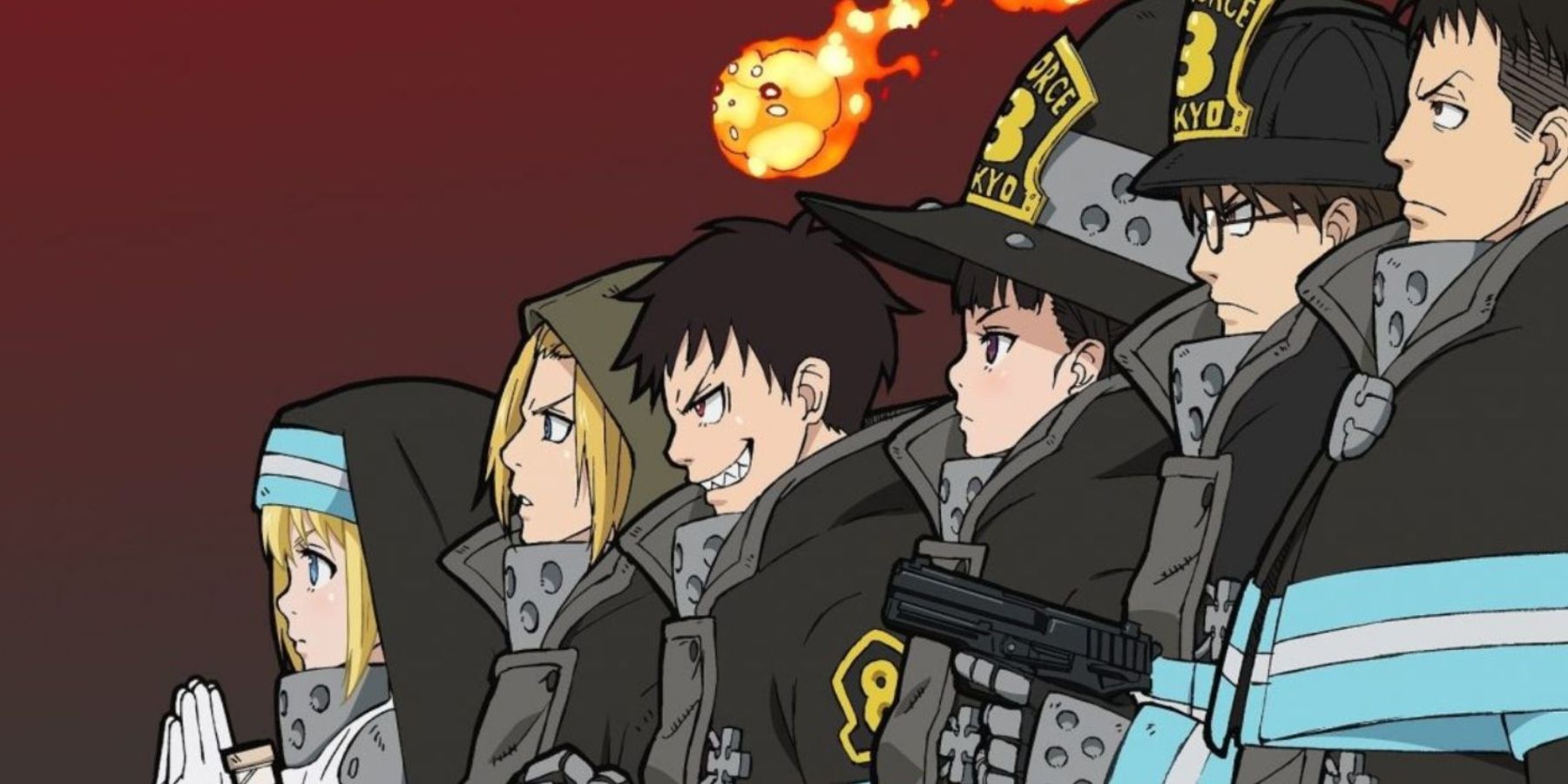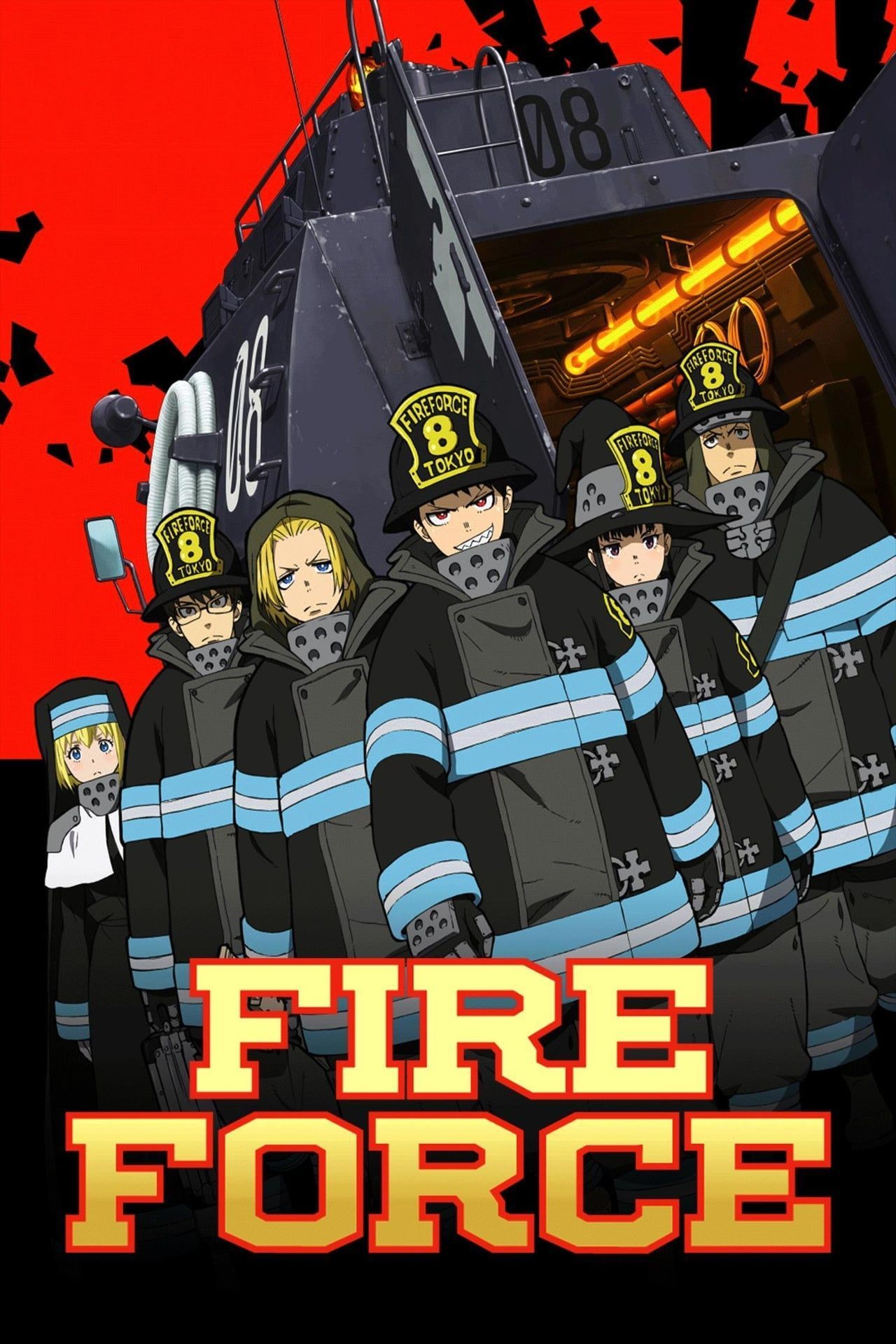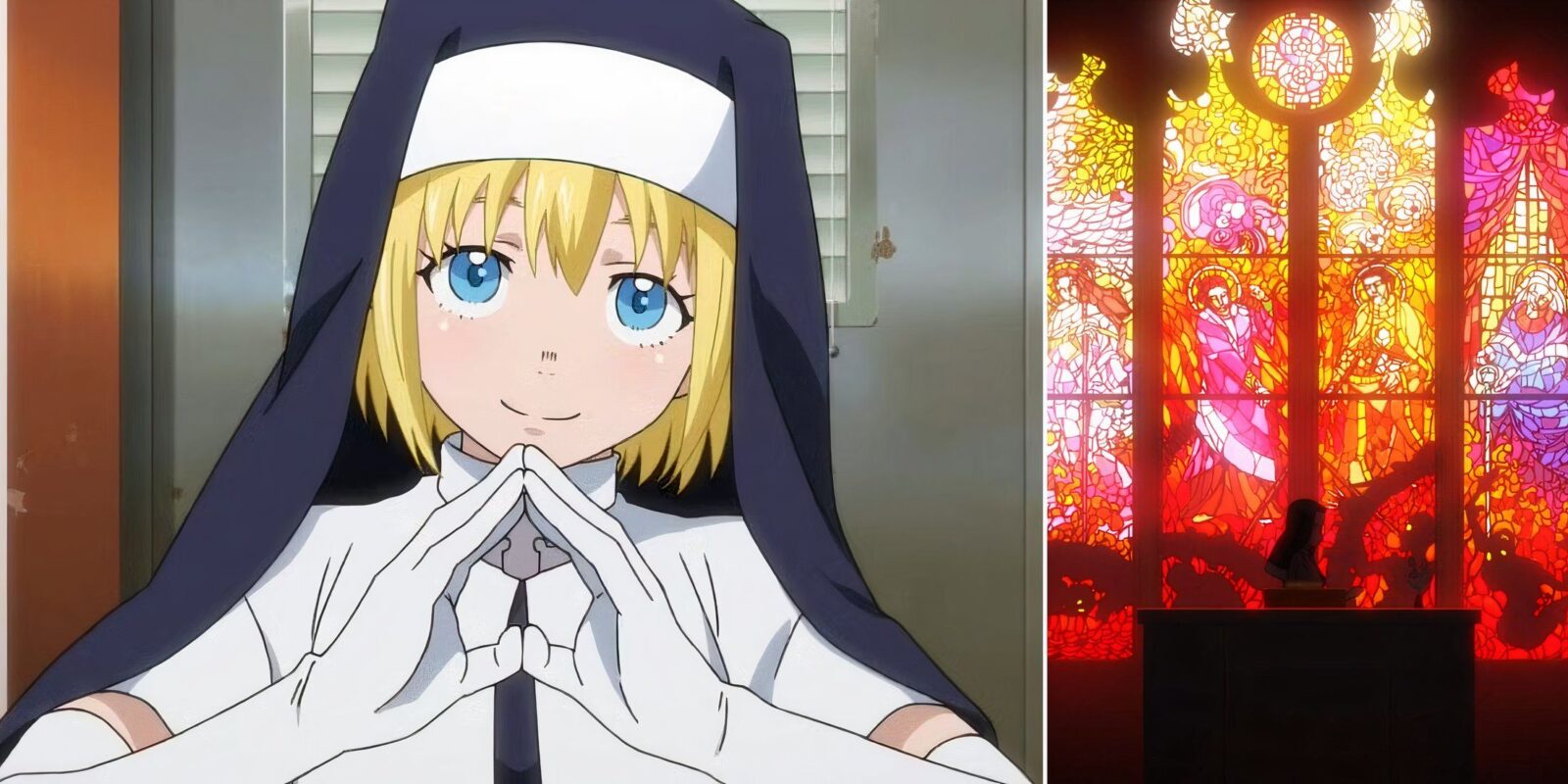Summary
- The word “látom” in Fire Force has multiple meanings: used before killing Infernals, as a parting phrase, or in prayer.
- Atsushi Ohkubo explains the religious origin of “látom” as a blend of the Egyptian sun god, “Ra,” and Japanese funeral practices.
- “Látom” in Fire Force reflects a dual meaning of respect for the gods and paying condolences to the defeated, defying easy translation.
The world of Fire Force created by Atsushi Ohkubo is filled with interesting quirks, whether it’s the sheer number of unique characters, the blend of architectural styles or the way the series uses religion.
Ohkubo has a fantastic reputation for making lighthearted stories rich in lore such as Soul Eater, and Fire Force is no different. One of the best examples of this is how naturally little details such as the use of látom become ingrained into the fabric of the story. Látom is used in various situations by pretty much all characters in Fire Force but its meaning is never fully explained, which led to much speculation. While Atsushi Ohkubo has explained it, his description also leaves plenty of room for discussion.

Related
Fire Force witnessed some pretty interesting arcs. These examples are some of the best of the bunch.
Látom’s Different Uses in Fire Force
One of the reasons that there’s not a clear and clean translation for látom into English is the unfathomable variety of situations in which the phrase is used.
Látom is most frequently uttered just before an Infernal is killed by the Fire Force. However, that’s just the tip of the iceberg. It’s also used:
- As a well-meaning parting phrase (similar to “take care out there”).
- As an ironic bracing phrase said ahead of something going wrong (like “here we go…”).
- At the end of prayer (like “Amen”).
In the majority of cases, látom can be seen as a kind of well-wishing ahead of someone’s death. That could be literal at the end of a big fight or ironic in the case of someone about to get in trouble.
However, the fact that the same word is also used as a kind of good luck charm by those going about daily life – in the same way you might wish someone a good day – complicates its meaning a little bit.
Fire Force’s Creator Explains Látom’s Religious Meaning
There are many different theories about látom on the internet. Some believe it might be Hungarian, where látom roughly translates to “I see.” Others translate it to ‘amen’, given its religious use.
Thankfully, creator Atsushi Ohkubo has actually revealed the true meaning of látom. During an interview with MyAnimeList at Anime Expo 2019, he was asked directly about its meaning and gave the following response:
“The church in Enen no Shouboutai is a solar religion that worships the sun. “Ra” is the name of the Egyptian sun god. Then the Japanese word tomurai [condolences, mourning, funeral] is mixed in.”
Does Látom Have a Double Meaning?
As Ohkubo explains, látom – pronounced ratom in Japanese – is cleverly constructed from two sources that not only produce a unique word but also shine light on its intended double meaning. (He also explains in the interview that the word meaning something in Hungarian is totally coincidental.)
The first part – la, or ra in Japanese – signifies respect to the gods; this plays neatly into the influence of religion that’s felt throughout Fire Force and explains why it might be used as a sign of good wishes, kind of like saying “I hope the gods look over you” or “stay safe”.
The second part – tom – is all about paying condolences; tomurai is commonly associated with funerals and the mourning process more widely, so it evokes images of caring for those who have passed on.
You can understand from this why many people see ‘amen’ as the most natural translation of látom. However, even that doesn’t feel wholly accurate. Látom isn’t just about hoping Infernals’ souls are spared, it’s about the Fire Force themselves paying respect to those they’ve defeated.
It’s clear that látom doesn’t have a clean translation, but also that it doesn’t need one. Even without reading this article, many fans can understand and enjoy the phrase as just another bit of excellent world-building by Atsushi Ohkubo.

- Release Date
-
July 6, 2019
- Directors
-
Yuki Yase, Tatsuma Minamikawa
- Writers
-
Yamato Haijima, Tatsuma Minamikawa













Leave a Reply